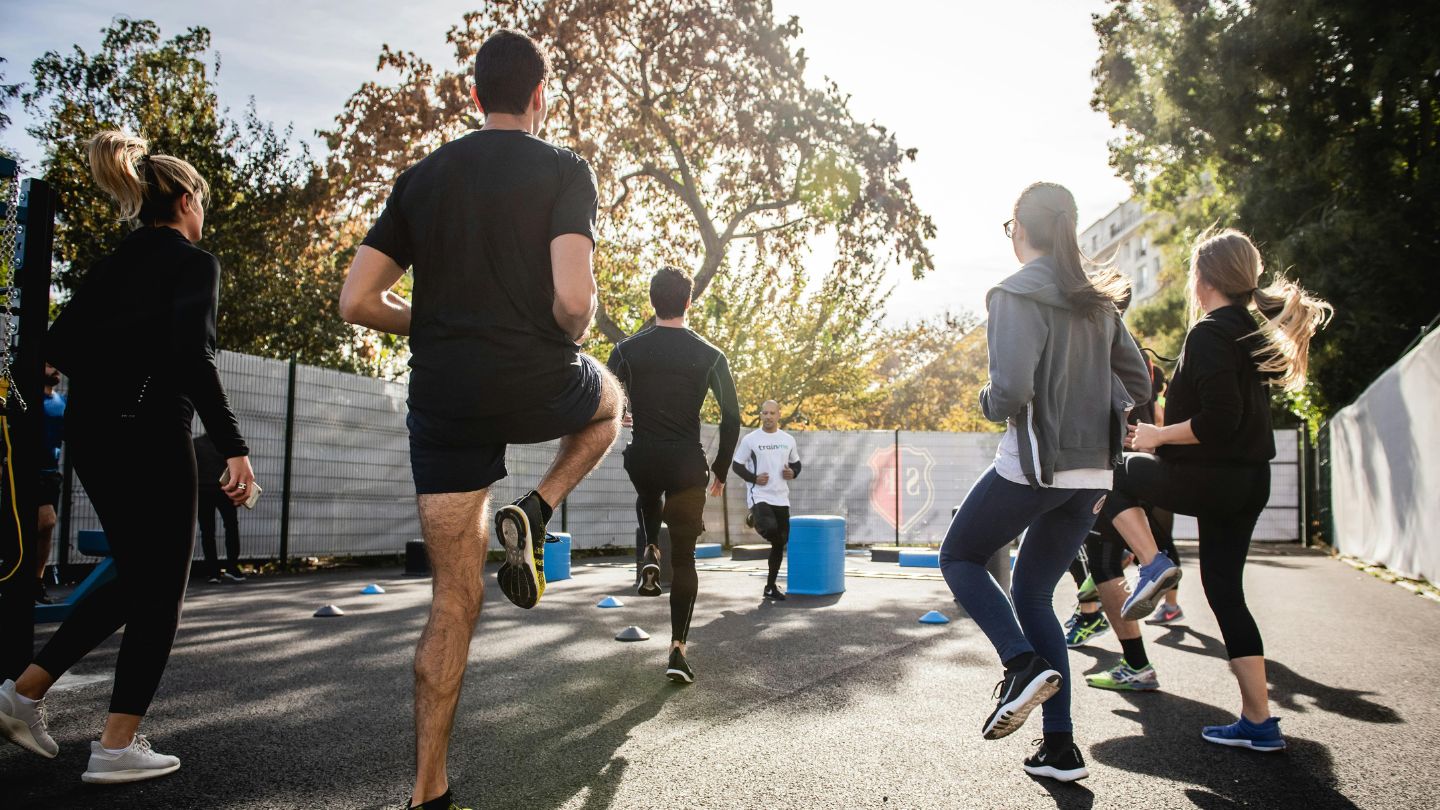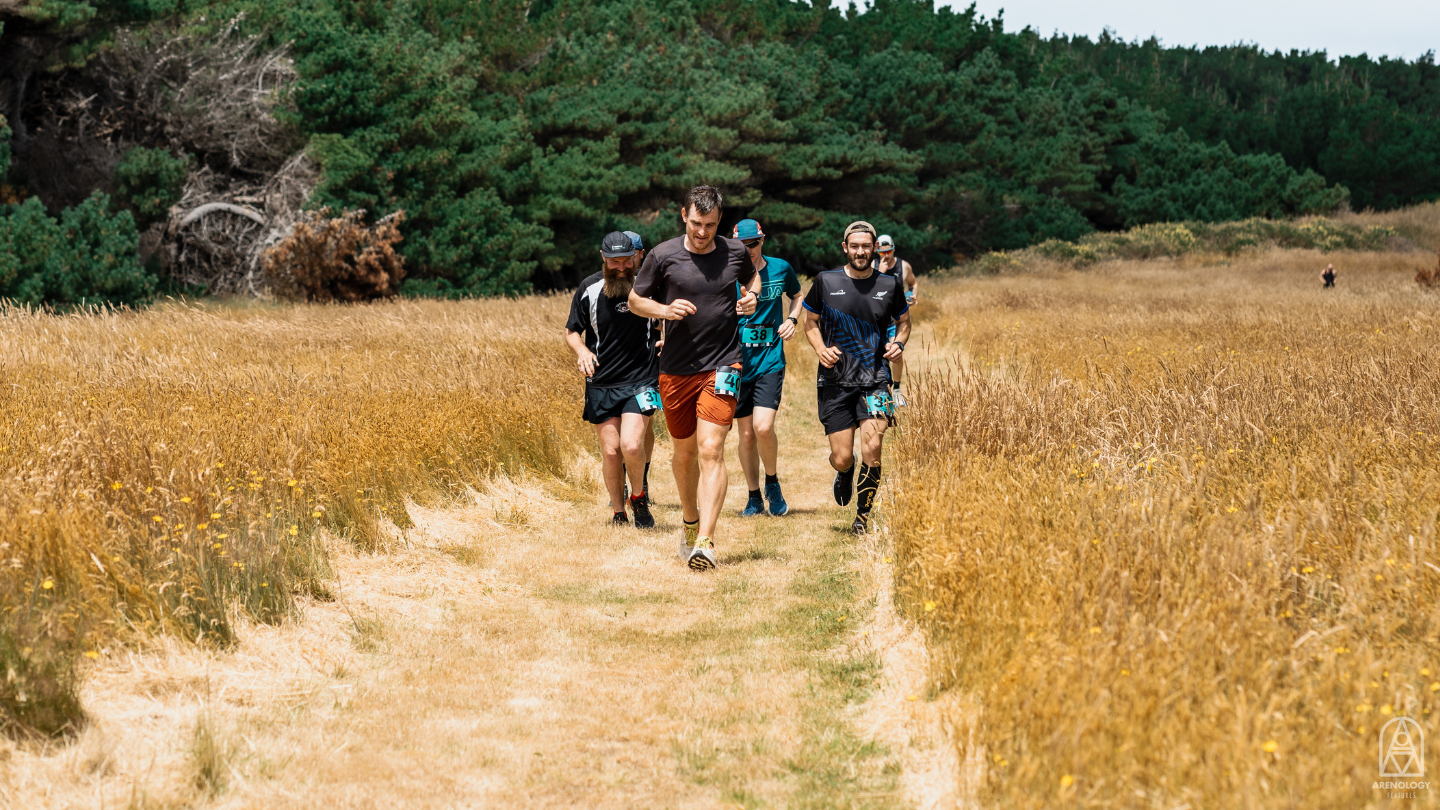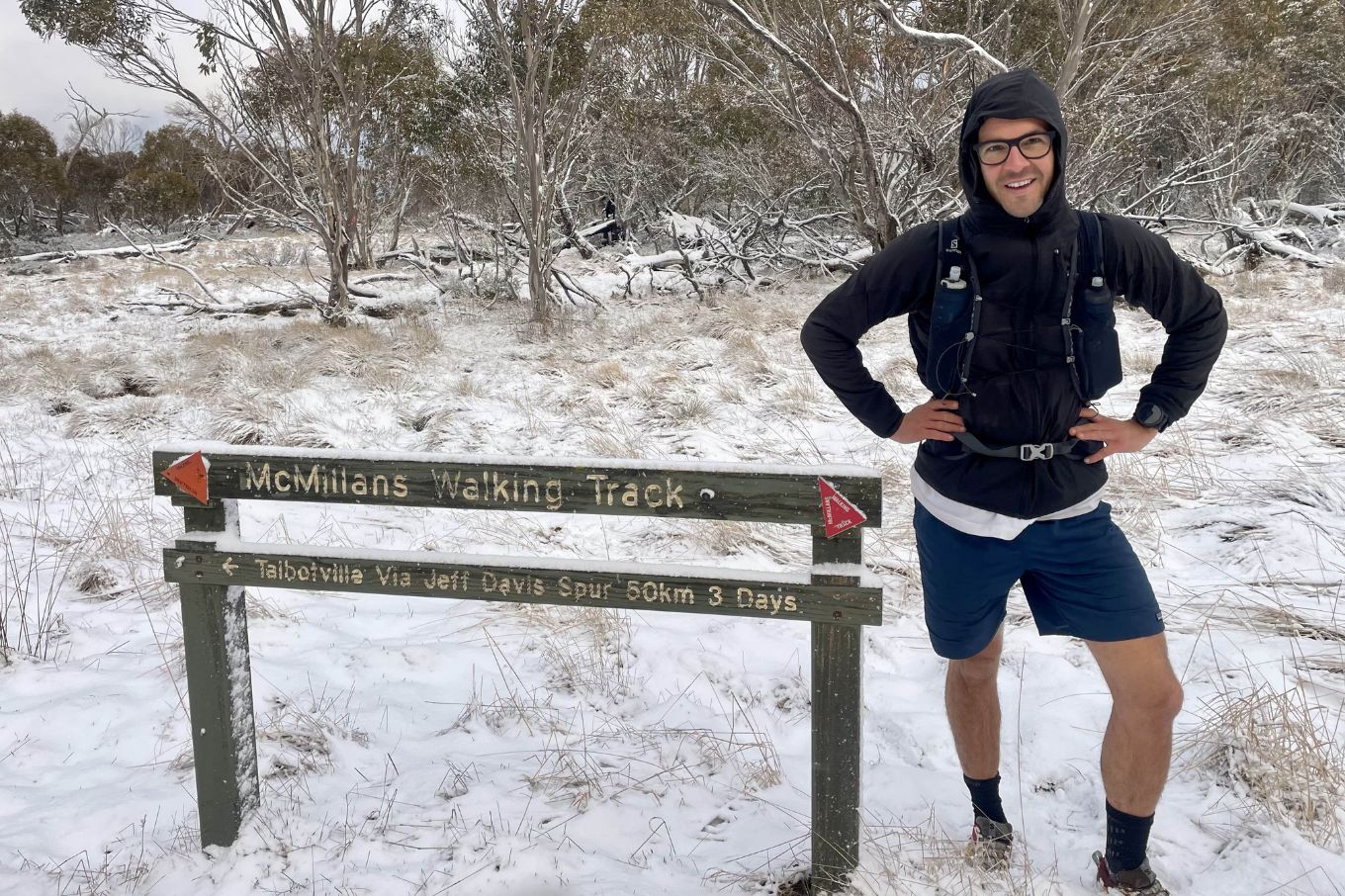For more than 14 years, running was an addictive curse feeding a sickness that clouded Lauren Starr’s world. TRM Editor, Chris Ord, goes for a run with an inspiring young woman who has battled Anorexia Nervosa and Chronic Fatigue Syndrome.
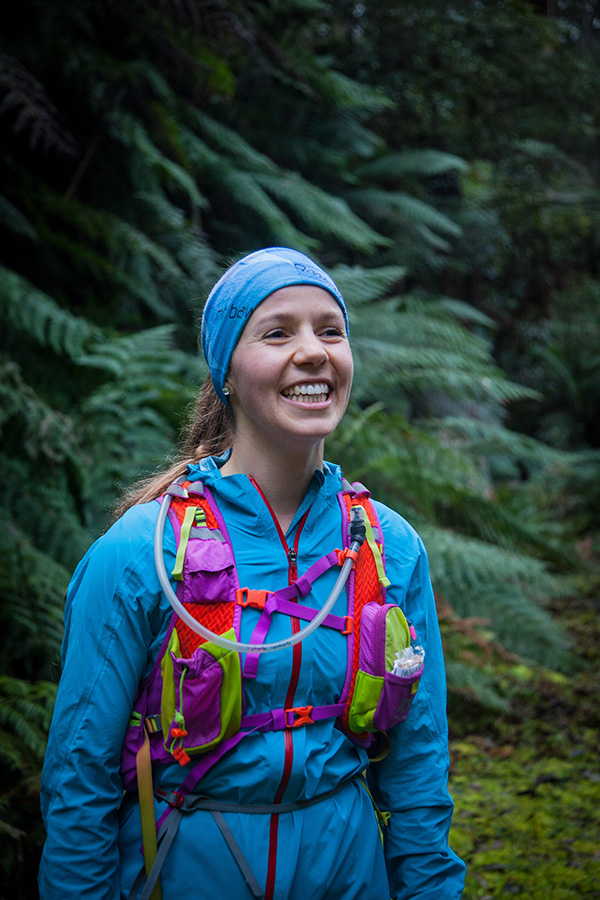
I am an insensitive idiot.
For most of her life, Lauren Starr has suffered from anorexia nervosa. An eating disorder. So where do I arrange to meet for the first time?
“Let’s meet at The Pantry, it’s a great little foodie place on the main street.”
The Pantry.
You idiot.
That said, like a contortionist unencumbered by the warning bells of a normal person’s sensitivity radar, I manage to squeeze the other foot into my mouth with ease.
In the initial email detailing her background, Lauren, a 26-year-old physiotherapist from Rowville, Victoria, tells me that she has also suffered from Chronic Fatigue Syndrome, a debilitating state that renders people unable to function in daily life as they struggle with unending and extreme exhaustion.
My idea for a good interview session, then?
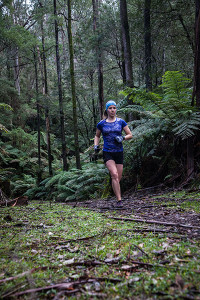
“How about we run the first leg of the Victorian Trail Running Festival course,” I suggest, thinking it appropriate given Lauren is an ambassador for the event. The route is 34km, a distance she has – despite being a talented runner – only completed once before, and one that would require a fair energy-sapping effort. Lauren later explains that she has to be measured about her physical undertakings and the level of exertion required, as keeping at bay a potential relapse into Chronic Fatigue Syndrome means being careful about what she takes on in terms of running efforts.
Halfway through our run – she remains sensible and curtails her effort to a more comfortable 20km – I’m also still mortified to think that the first thing I said after hello, was “what would you like to eat?”
“It was okay,” says Lauren when I apologise. “The eating disorder will always be with me, but that’s not what I fear or obsess about as much now. It’s more the fear of lapsing back into Chronic Fatigue that dictates how I live my daily life.”
It makes sense, then, that she eventually ordered a muffin back at The Larder. I took that as either a sign of being free from the monster that is calorie-counting anorexia or that she was, against advice of all her inner demons, being polite. Wrong on both counts.
“No, once I realised we were going to run longer than I expected, I was weighing up how much energy I’d use, what would be the nutritional needs against that kind of distance, to ensure I wouldn’t take a massive dip in my energy reserves. It’s a constant balance like that – I’m always thinking about how to maintain a level of energy and healthiness. I never want to be so debilitated again, like I was with Chronic Fatigue. I never want to be unable to run again.”
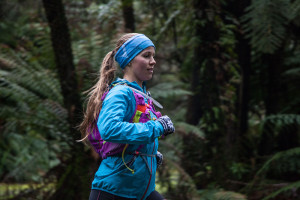 Today, running – and a pure love of it – is Lauren’s angel on the shoulder where once it was the devil. In the darker days it played a large part in fuelling the anorexia.
Today, running – and a pure love of it – is Lauren’s angel on the shoulder where once it was the devil. In the darker days it played a large part in fuelling the anorexia.
“I used it [running] to keep weight off,” says Lauren. “I was always pretty competitive and driven – I think you find that in a lot of sufferers – so the fast times, personal bests and trying to win was, like it is for many runners, part of the drive. But the over-riding motivator to run was because it kept me skinny.”
Lauren recounts one of her darkest moments as being in an almost manic meltdown as a teenager, when it was looking like she could not go on a planned after-school run. Unable to drive her to the run, her parents copped the wrath of a girl consumed by an irrational fear that missing one single outing would lead to devastating weight gain.
“I cried and shouted until they relented and found a way to get me to that run. At the time, in my head, the world was crashing down around me. Looking back, it seems so ridiculous. But the disease of anorexia is not a rational or sensible thing.”
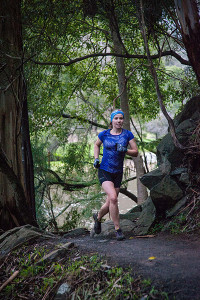 While running became an integral part of the machinations of anorexia, it was not what initially sparked the downward spiral. Until the age of eleven, Lauren had like many other young girls her age been enjoying childhood and was yearning to own a horse. Her naturally driven personality came to the fore as she asked for no presents just money every Christmas and birthday from age six until she had saved enough money to buy the horse. Her spare time was then consumed with riding and caring for it.
While running became an integral part of the machinations of anorexia, it was not what initially sparked the downward spiral. Until the age of eleven, Lauren had like many other young girls her age been enjoying childhood and was yearning to own a horse. Her naturally driven personality came to the fore as she asked for no presents just money every Christmas and birthday from age six until she had saved enough money to buy the horse. Her spare time was then consumed with riding and caring for it.
“Because I was always riding or mucking out stables, I was physically active,” says Lauren. “And that meant while other friends were watching TV, eating crisps, I was burning energy and as a result I lost some weight.”
“Before that time, I had never even thought about the concept of fat or skinny or been conscious of my weight at all. But some random – and they were actually positive – comments on my change in body shape woke up something inside me, it turned attention to how my body looked. That quickly turned into an obsession.”
Lauren was soon refusing food and counting calories with fervour.
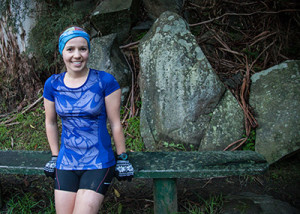
“You could show me nearly any food and I’d know the calorie count and fat content,” says Lauren. “I knew it wasn’t normal, I guess, in that my friends weren’t doing the same thing and they would try to get me to eat things. But I justified it in my head – my world-view somehow contorted what was happening and made it okay, made it normal. So nothing was wrong with me.”
This despite increasing visits to doctors and specialists and, as she came of age, her menstruation was MIA. All the while, and despite low calorie intake, Lauren’s running excelled.
“I wasn’t a regular runner as a kid so much, but a friend encouraged me to go running with her shortly after I initially developed anorexia. The more I ran, the more I found I could maintain or even drop my weight, so it started to feed into the anorexia.
“I also began to do well at it, so the recognition I received for performing on cross country runs, road runs and eventually triathlons, also helped. I needed that reassurance, the affirmation of being good at something. And the fact I was skinny was seen as a good thing. In the running world, being skinny is a positive. Also, in my head, it helped my performances. So the skinnier I was, the better on all fronts.”
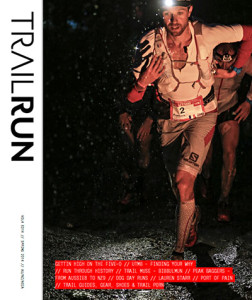 Discover how Lauren overcame her challenges…read the rest of her story in Edition 14, which you can download for FREE now, here.
Discover how Lauren overcame her challenges…read the rest of her story in Edition 14, which you can download for FREE now, here.
To talk to someone confidentially about anything relating to eating disorders, see www.thebutterflyfoundation.org.au
For more information on Chronic Fatigue Syndrome, see www.mecfs.org.au
Lauren is an ambassador for the the VICTORIAN TRAIL RUNNING FESTIVAL, 1-3 November. Worth a crack…

